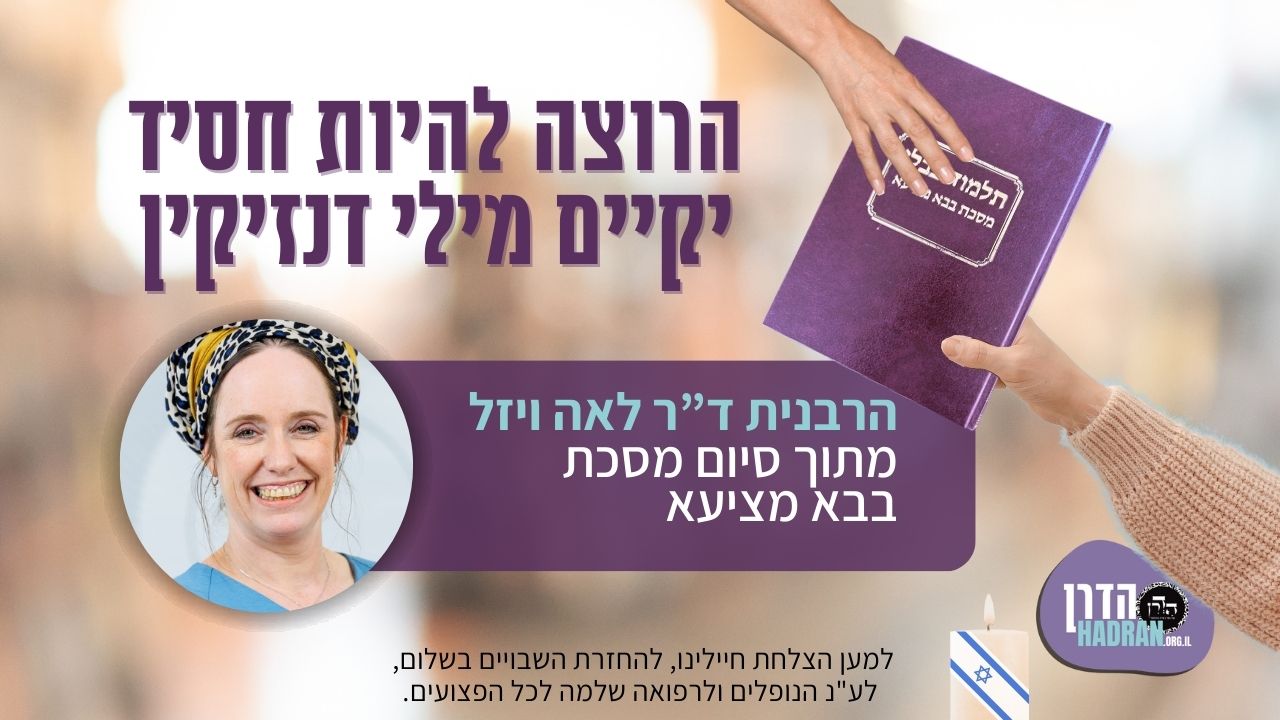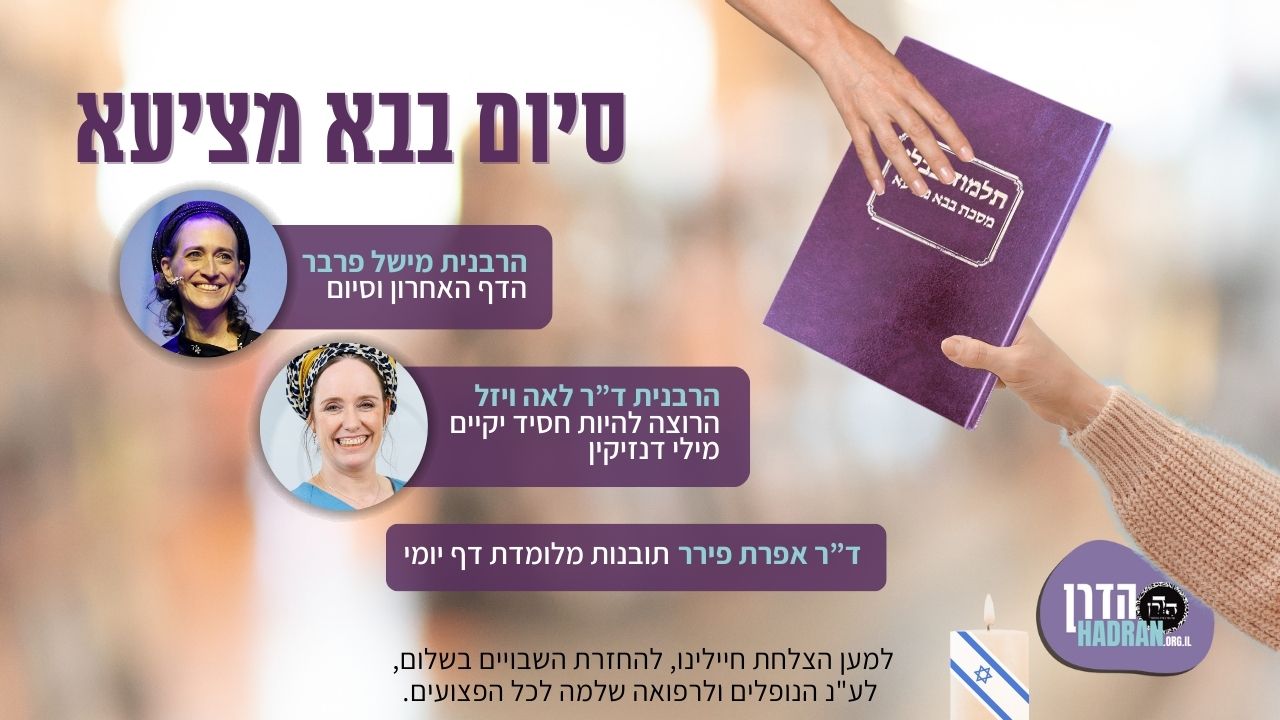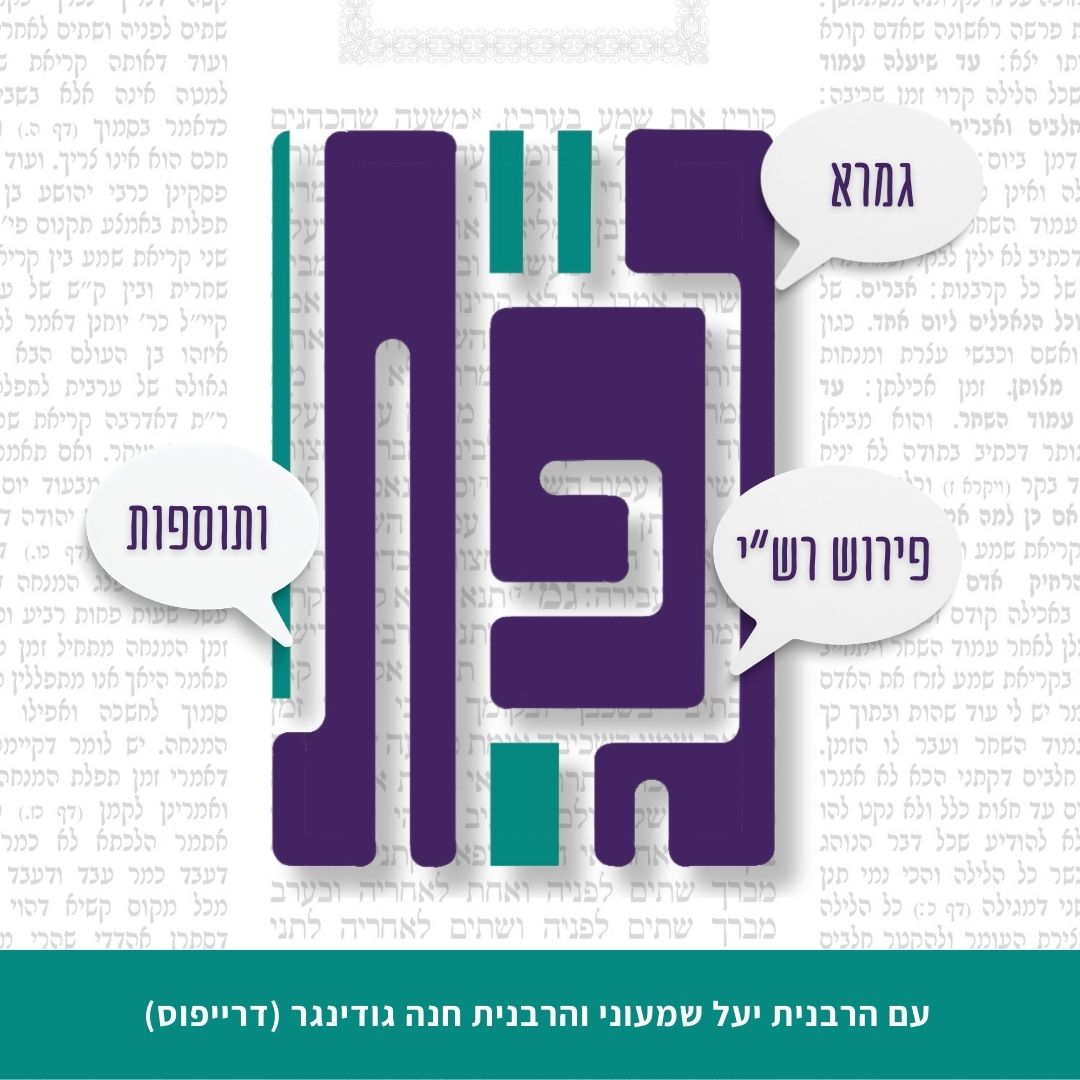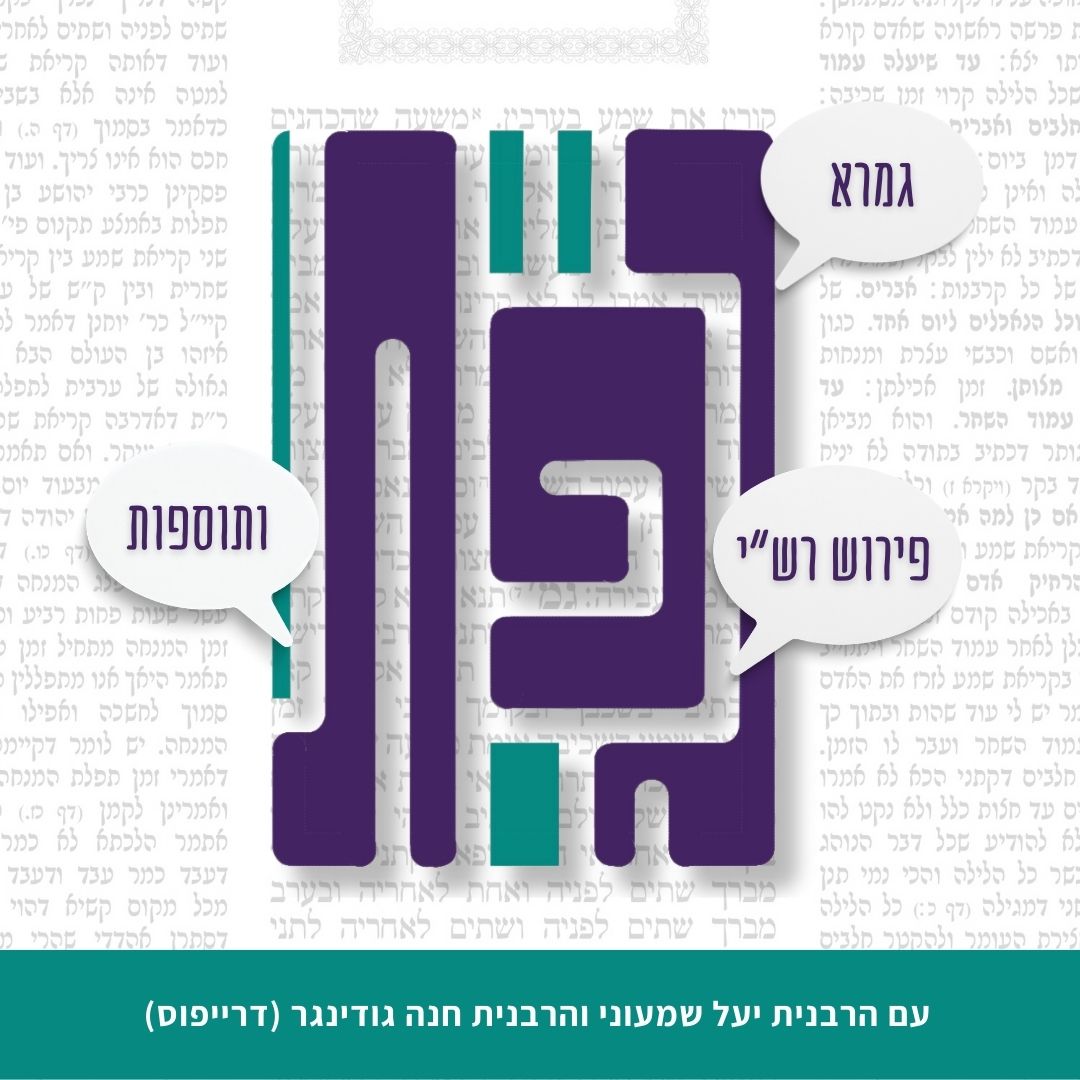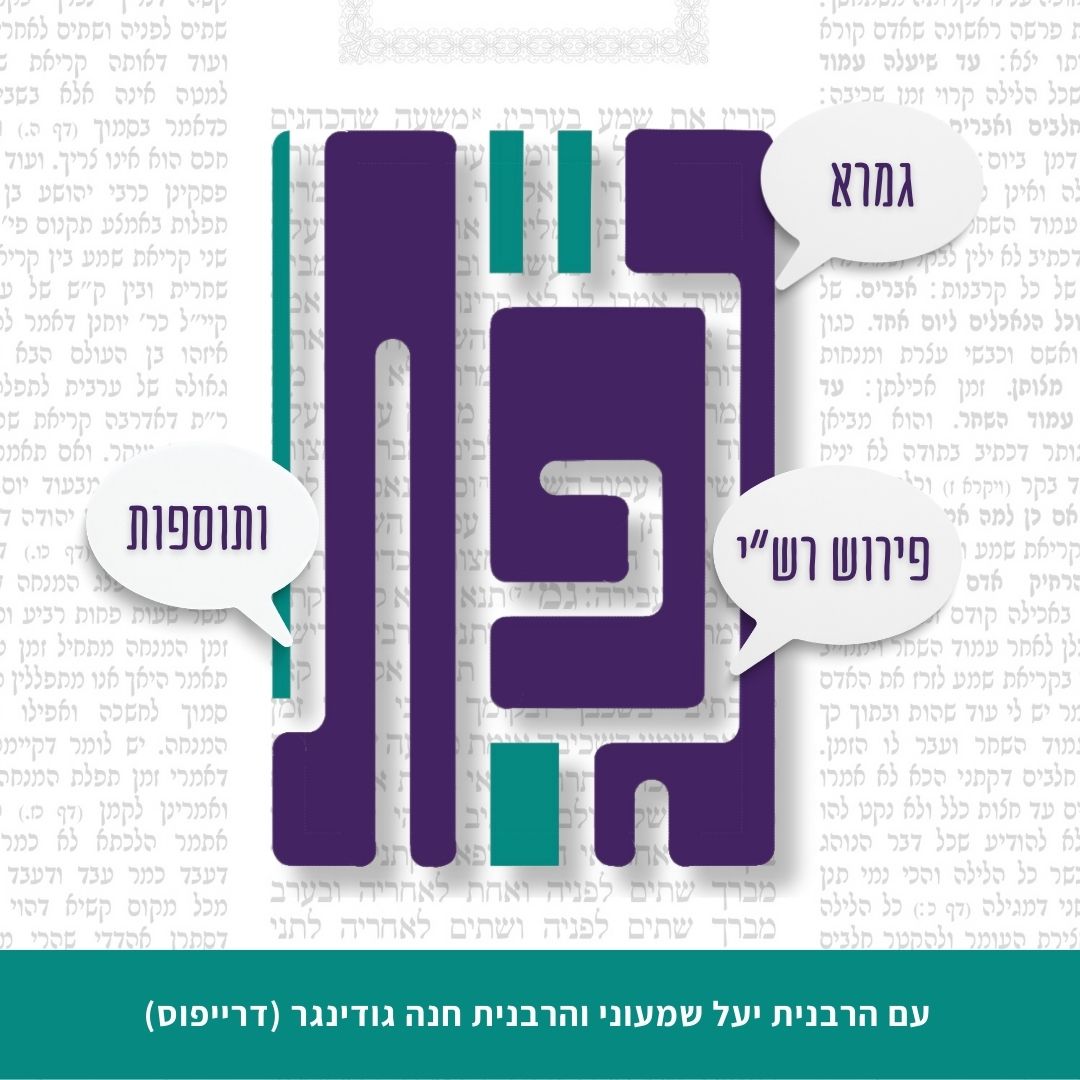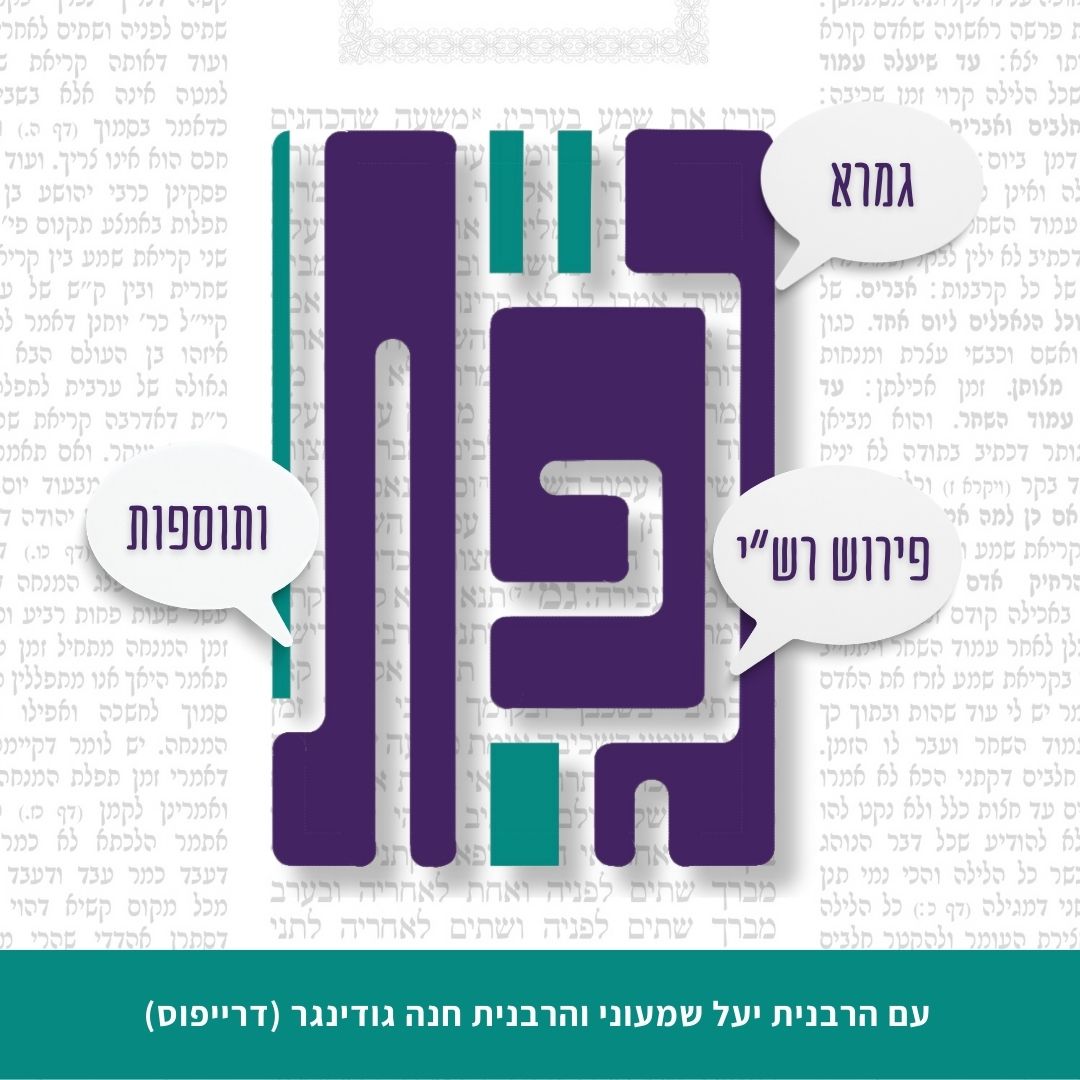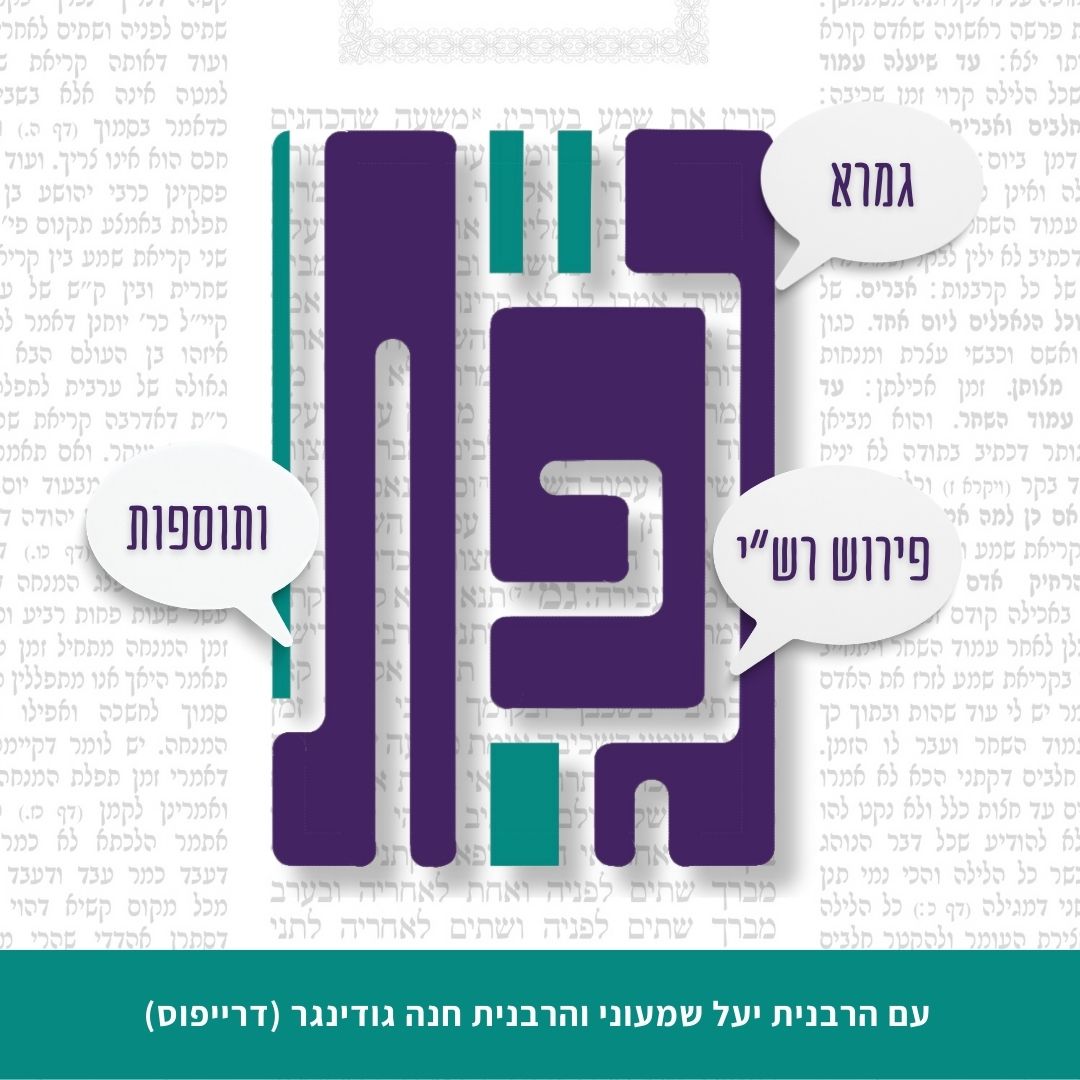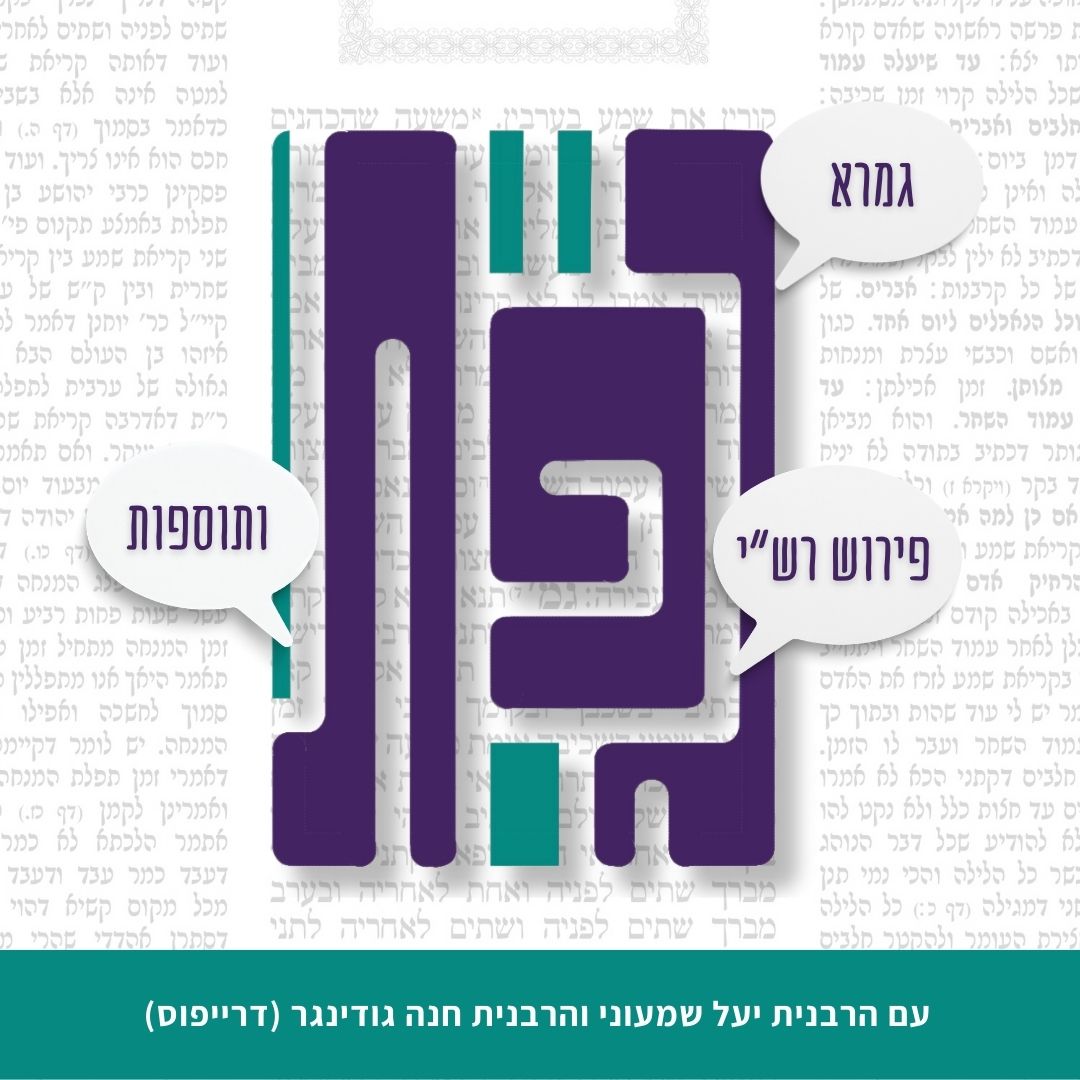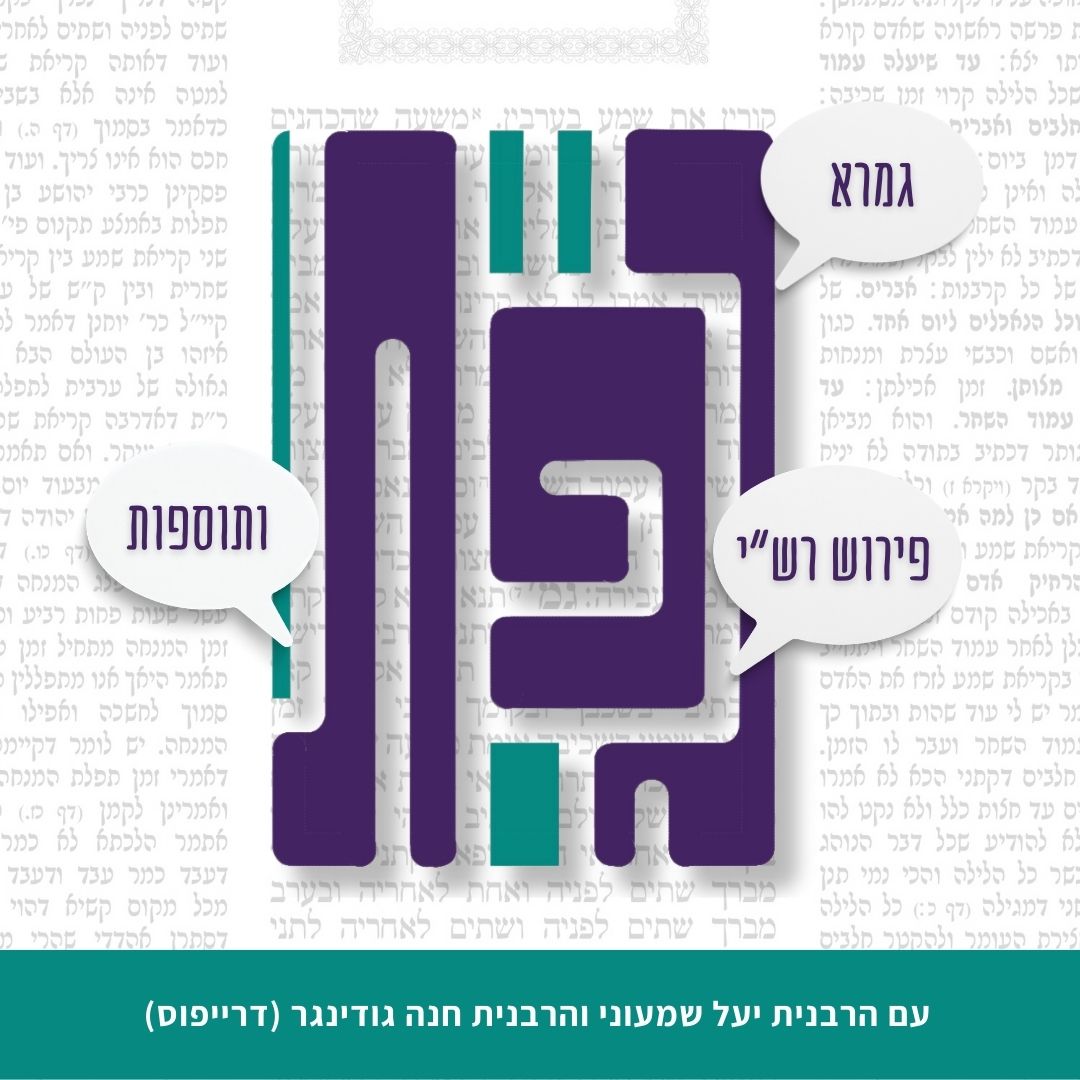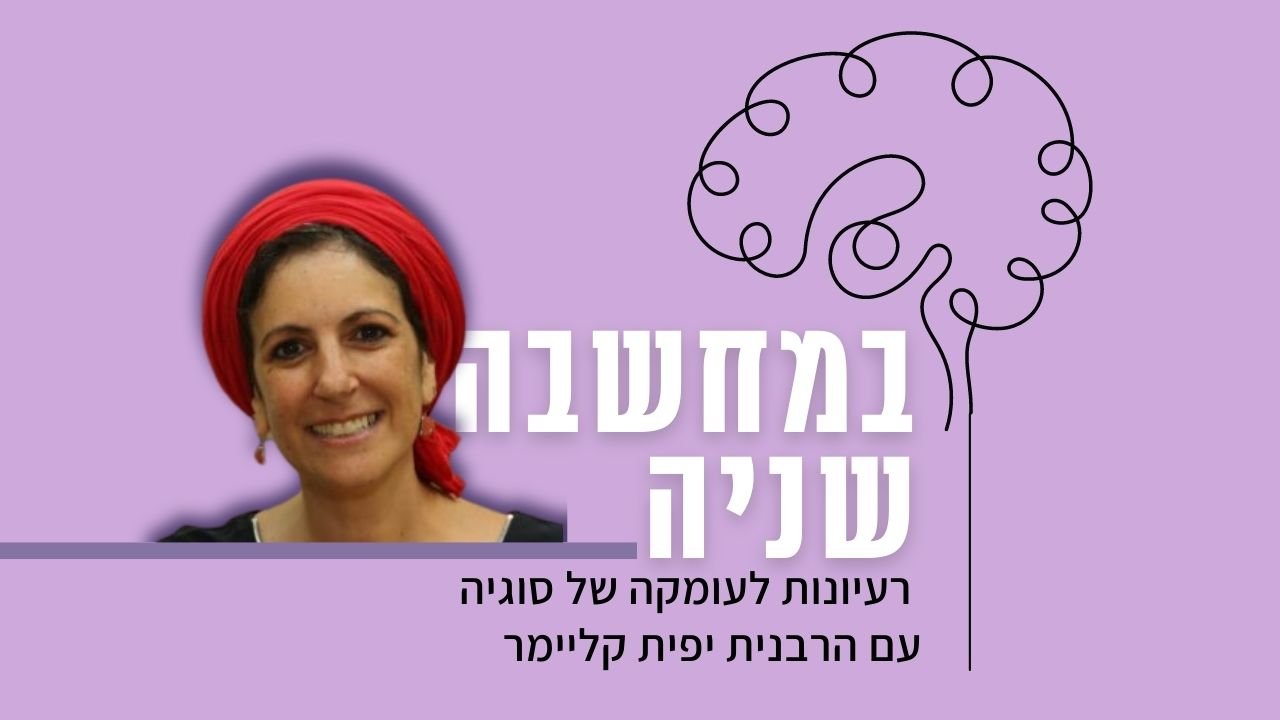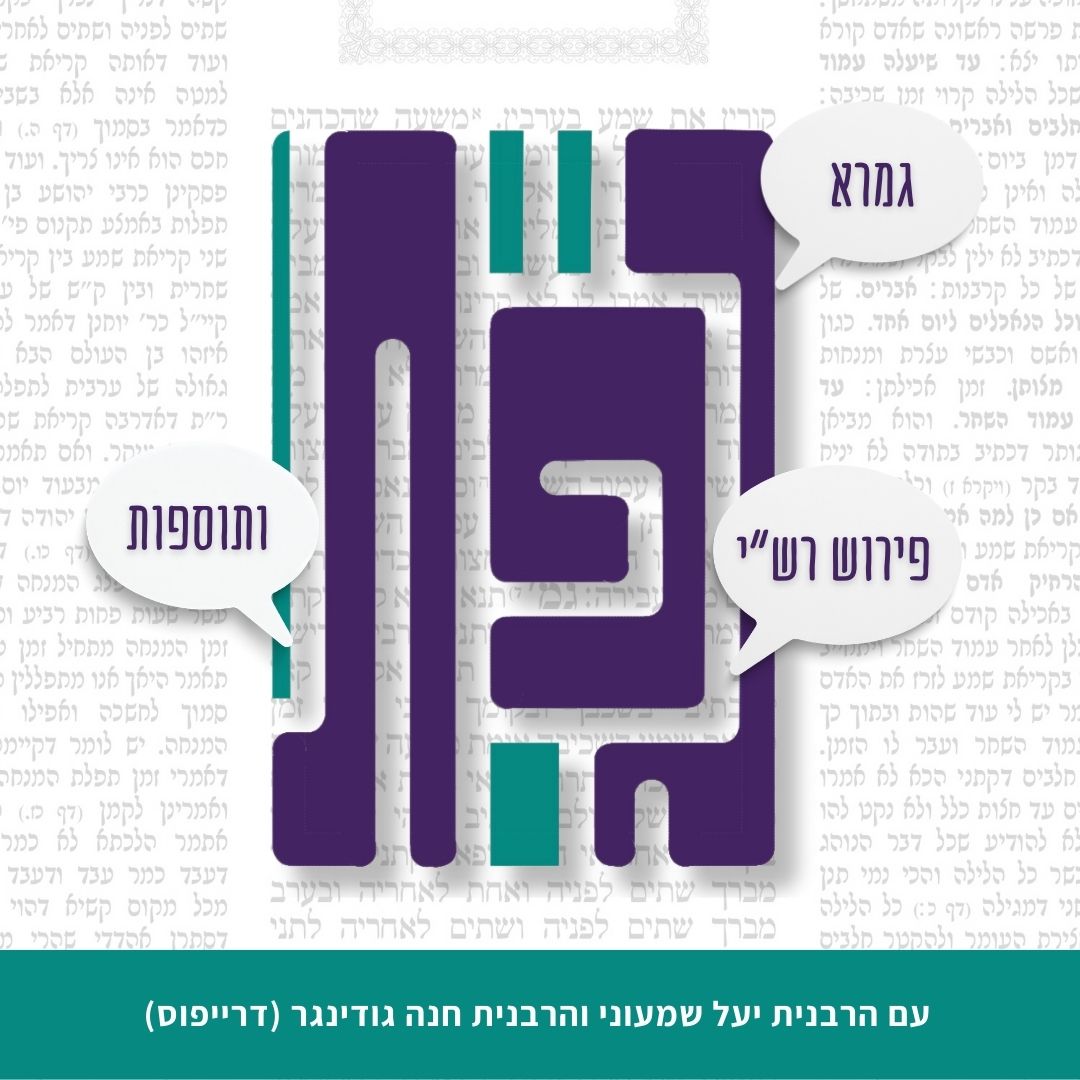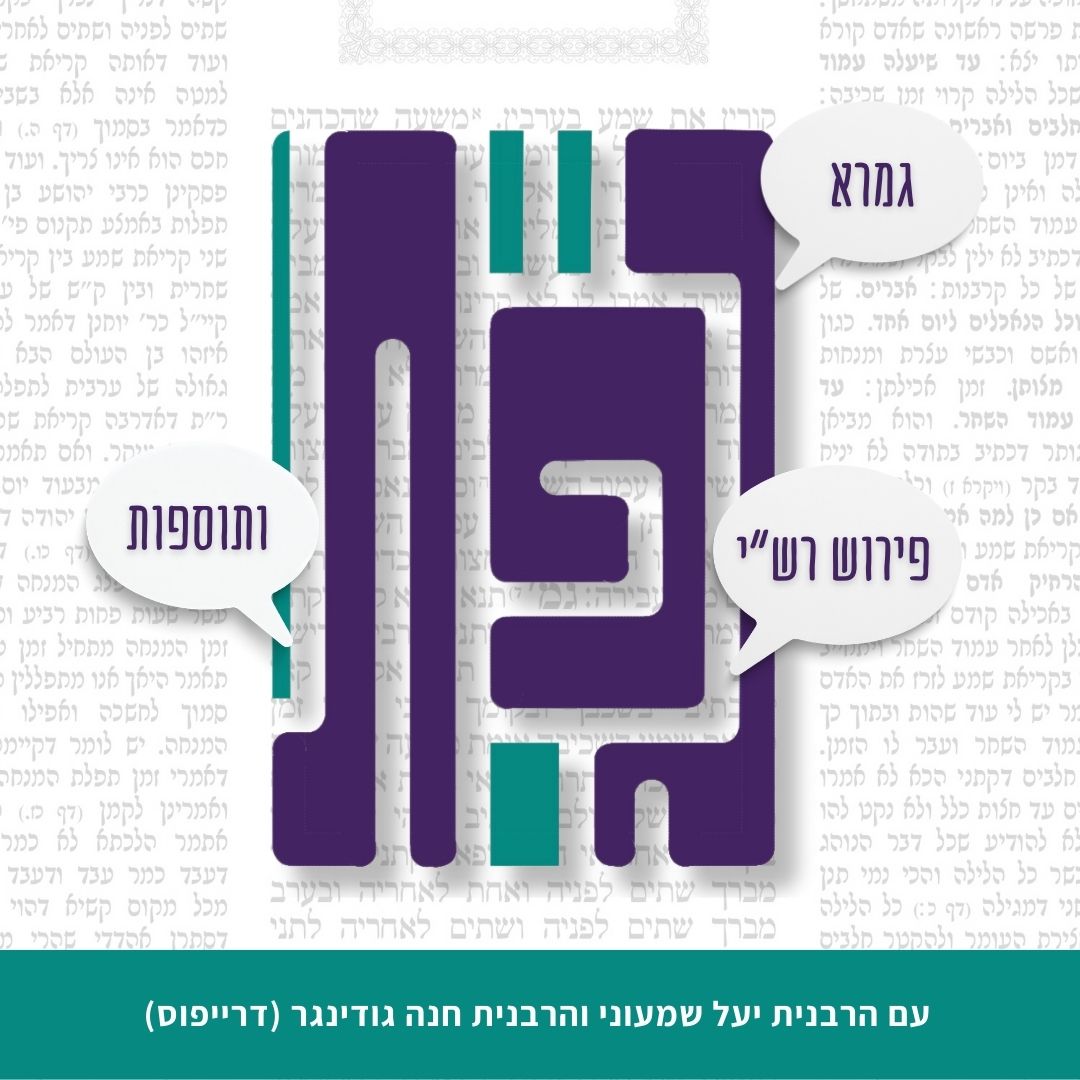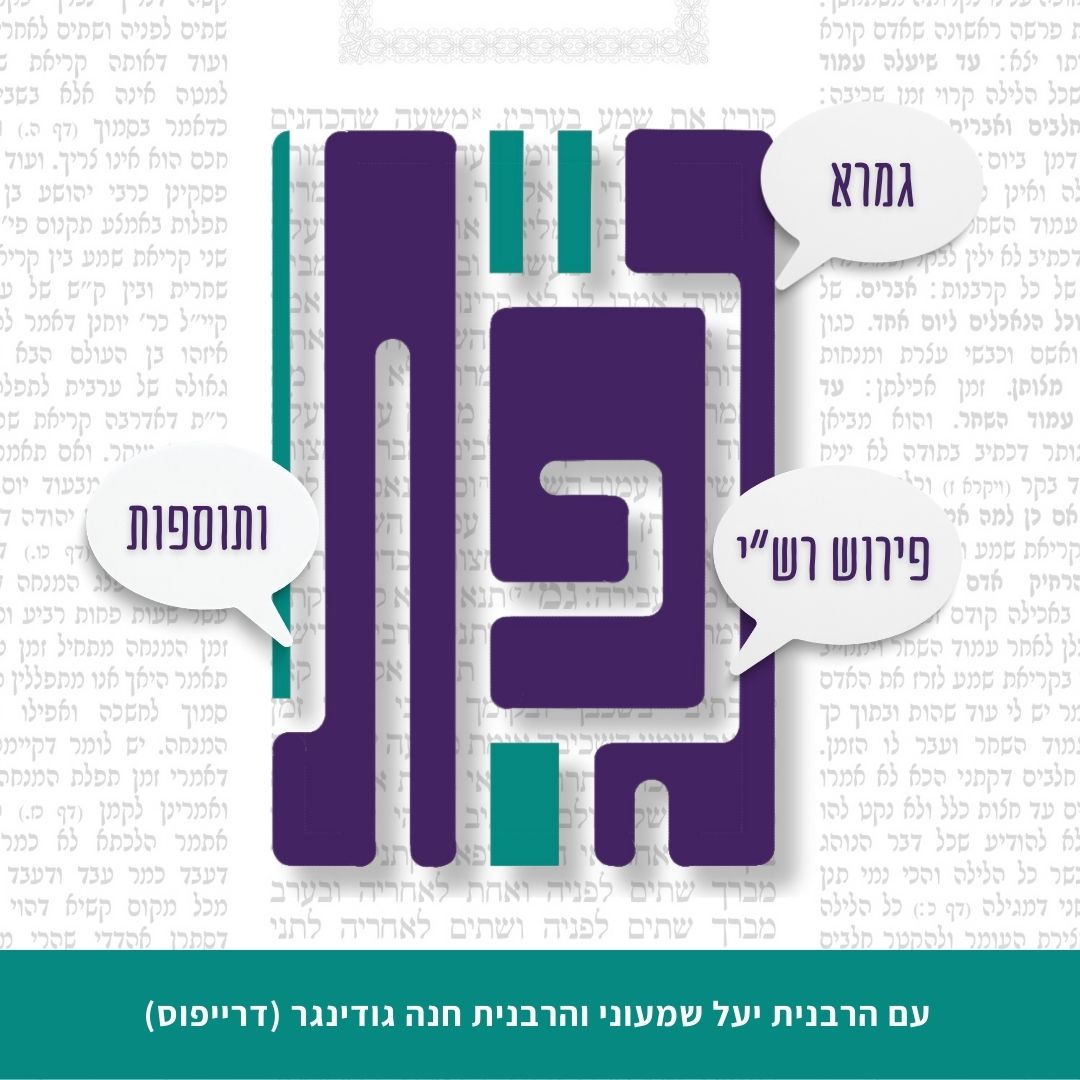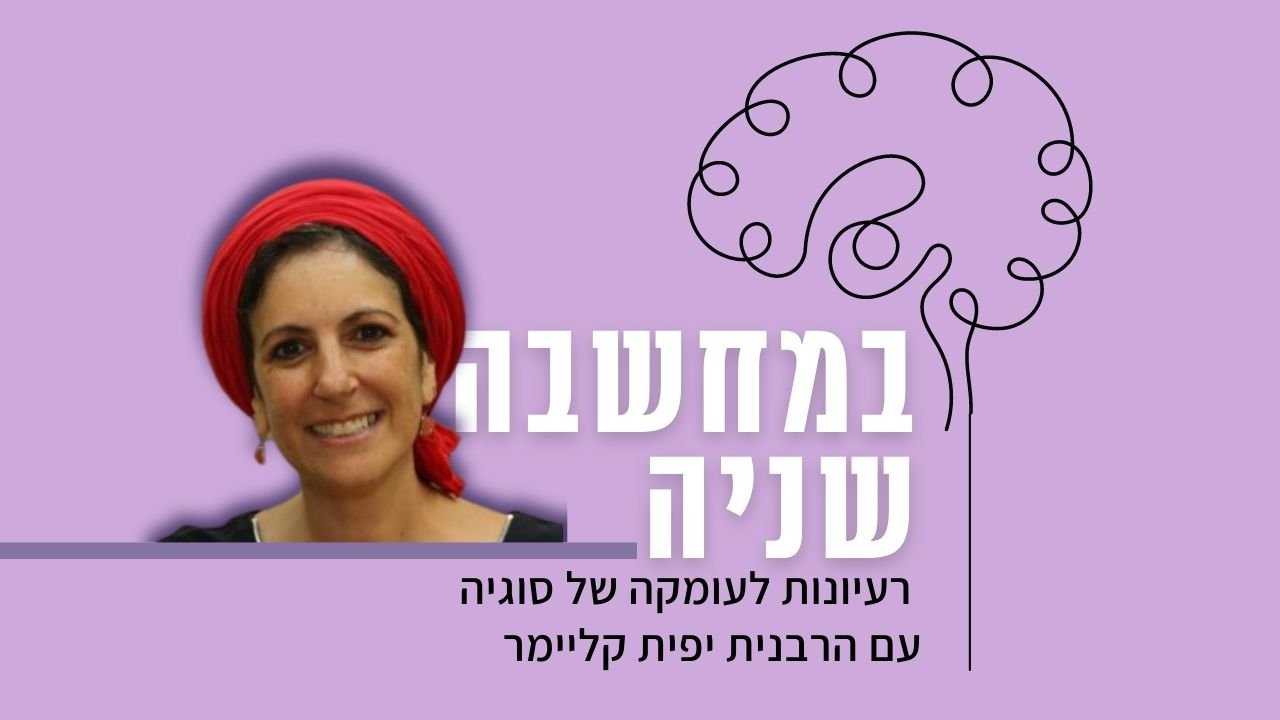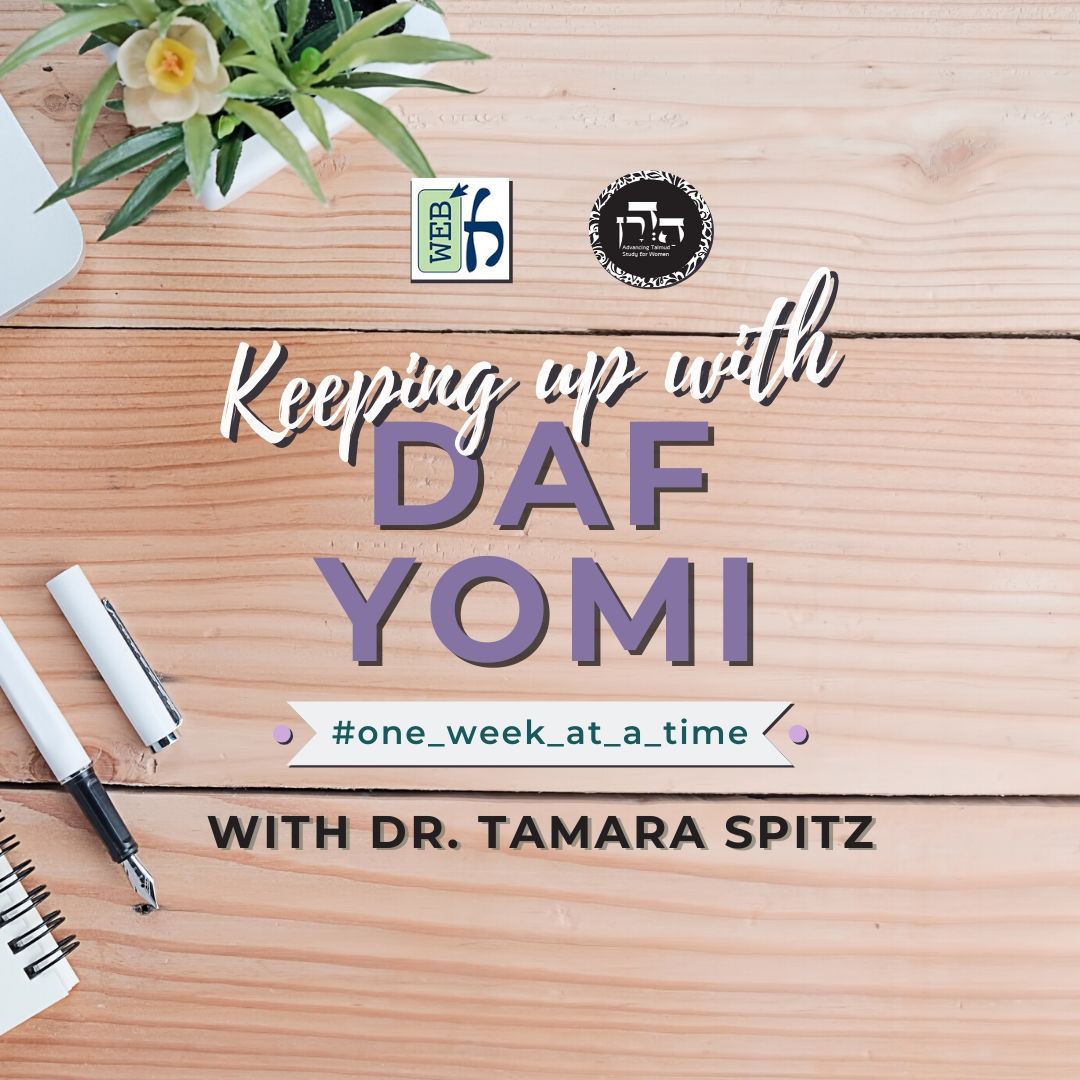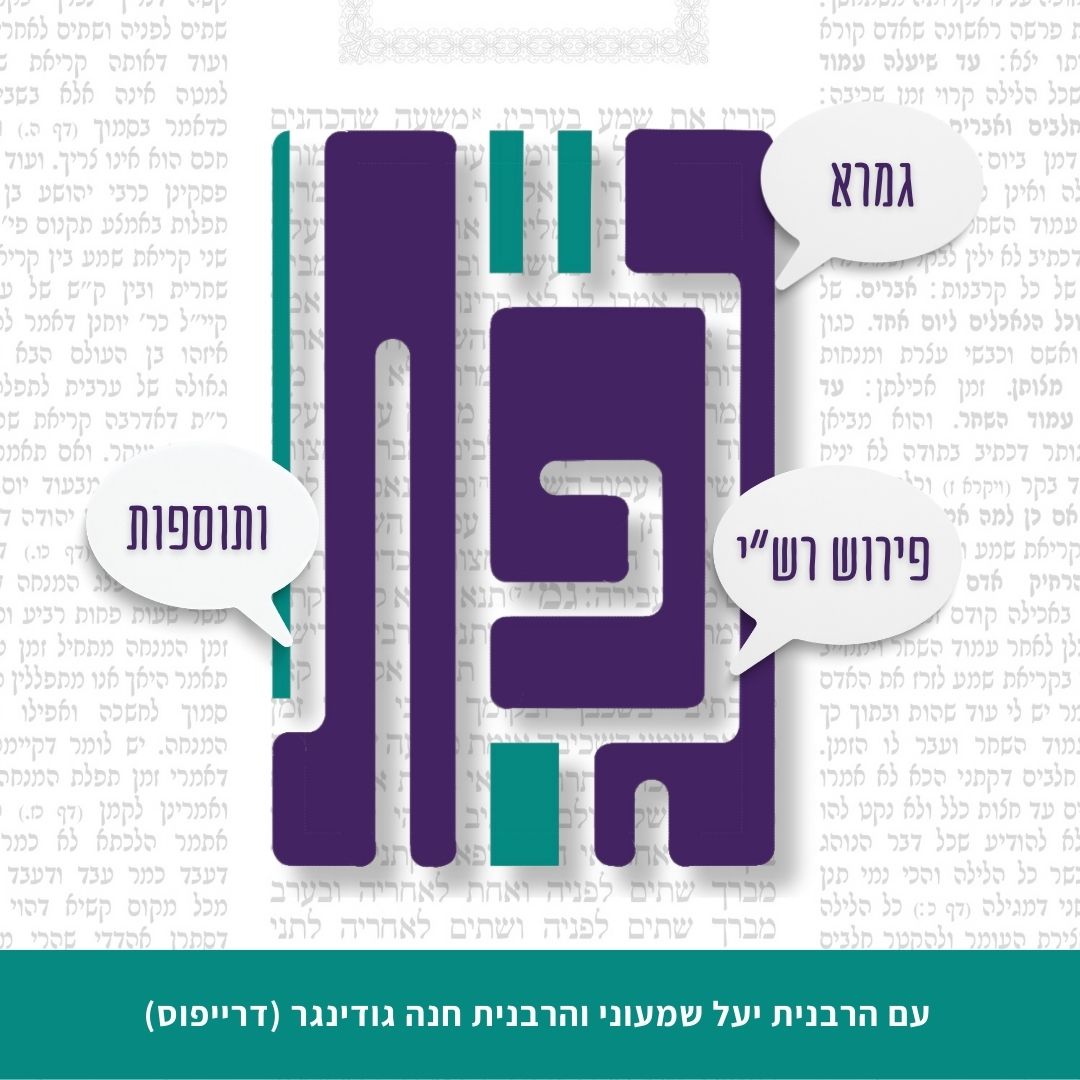לאחר שהסיקו שכולם מסכימים שאם הבעל שם גט בחצר אשתו, היא מתגרשת משום שחצרה נחשבת כידה, מביאה הגמרא שלושה הסברים על מה חולקים ריש לקיש ורבי יוחנן לגבי חצרה וארבע אמות של קטנה. אם אנשים רצים אחרי בעל חיים עם רגל שבורה שנכנס לשדה של מישהו, בעל השדה יכול לרכוש אותו באמירת "זכתה לי שדי” שכן החיה לא מסוגלת לברוח. אבל אם החיה הייתה יכולה לרוץ מהר ולברוח, אז האמירה הזו לא תהיה יעילה. שמואל מגביל את המשנה שהשדה אינה משתמרת והבעל עומד בסמוך. הגמרא מביאה הוכחה מברייתא שבשדה שאינה משתמרת, על הבעלים להיות בקרבת מקום כדי לזכות בחפץ מהפקר. הברייתא סותרת את עצמה ולכן מוצעת קריאה חלופית המשמשת להוכחת דברי שמואל. אולם הגמרא מציעה קריאה חלופית של הברייתא כדי לדחות את ההוכחה, אך קריאה זו אינה מתקבלת. גם עולא ורבא בר בר חנה הגבילו את המשנה כשמואל. רבי אבא מעלה קושי נגד עולא ממשנה במעשר שני ה:ט על כך שרבן גמליאל נתן זכויות במעשר שלו לרבי יהושע ורבי עקיבא בהיותם על סירה בכך שהשכיר להם זכויות על חלקת אדמה בנכסיו. מאחר שלא עמדו ליד הנכס, ניתן להוכיח כי רכשו אותו מבלי להיות ליד השדה. תשובה אפשרית אחת לקושי היא להסביר שפעולת הרכישה הייתה דרך קניין אגב, לפיו מי שרוכש קרקע ודברי מטלטלין רוכש את הקרקע (באמצעות כסף) והמיטלטלין הופכים אוטומטית לשלו. רבי אבא לא קיבל את התגובה הזו ורבא מסביר מדוע. רבא מציע שמאחר שהיתה דרך קלה יותר לעשות זאת – על ידי קניין סודר, ולא השתמשו בקניין הזה, זה כנראה משום שהזכות לרבן גמליאל במעשר לאחר שהפריש אינה זכות ממונית אלא טובת הנאה בלבד. אולם הגמרא דוחה את הצעתו של רבא ומסבירה שמתנות כהונה נחשבות לכסף ומסבירה מדועקניין סודר לא היה מועיל, אבל קנין אגב כן. רב פפא מציע תשובה אחרת לקושי של רבי אבא בכך שמבחין בין זכיה מהפקר וזכייה כשיש מישהו המקנה את החפץ לצד השני.
רוצה להקדיש שיעור?
כלים
העמקה
רוצה להבין מה באמת קורה מתחת לפני השטח של הסוגיה?
שיעורים, פודקאסטים והרחבות של מיטב המורות שלנו יפתחו לך עוד זוויות וכיווני חשיבה.
חדשה בלימוד הגמרא?
זה הדף הראשון שלך? איזו התרגשות עצומה! יש לנו בדיוק את התכנים והכלים שיעזרו לך לעשות את הצעדים הראשונים ללמידה בקצב וברמה שלך, כך תוכלי להרגיש בנוח גם בתוך הסוגיות המורכבות ומאתגרות.
פסיפס הלומדות שלנו
גלי את קהילת הלומדות שלנו, מגוון נשים, רקעים וסיפורים. כולן חלק מתנועה ומסע מרגש ועוצמתי.
בבא מציעא יא
יָלְפִינַן מְצִיאָה מִגֵּט, וּמָר סָבַר: לָא יָלְפִינַן מְצִיאָה מִגֵּט.
we derive the halakha with regard to acquiring a found item from the halakha with regard to a bill of divorce, and one Sage, Abba Kohen Bardela, holds that we do not derive the halakha with regard to a found item from the halakha with regard to a bill of divorce.
וְאִיבָּעֵית אֵימָא: בִּקְטַנָּה כּוּלֵּי עָלְמָא לָא פְּלִיגִי דְּיָלְפִינַן מְצִיאָה מִגֵּט. וְהָכָא בְּקָטָן קָא מִיפַּלְגִי,
And if you wish, say instead that with regard to a minor girl, everyone agrees that we derive the halakha with regard to a found item from the halakha with regard to a bill of divorce, and she acquires an ownerless item that is found in her courtyard. And here they disagree with regard to whether a minor boy acquires an item that is placed in his courtyard.
מָר סָבַר: יָלְפִינַן קָטָן מִקְּטַנָּה. וּמָר סָבַר: לָא יָלְפִינַן קָטָן מִקְּטַנָּה.
One Sage, Rabbi Yannai, holds that we derive the halakha with regard to a minor boy from the halakha with regard to a minor girl, as there should be no difference between them with regard to the halakhot of acquisition. And one Sage, Abba Kohen Bardela, holds that we do not derive the halakha with regard to a minor boy from the halakha with regard to a minor girl; only a minor girl acquires items by means of her courtyard, as the Torah includes this mode of acquisition with regard to acquiring a bill of divorce.
וְאִיבָּעֵית אֵימָא: מָר אֲמַר חֲדָא, וּמָר אֲמַר חֲדָא וְלָא פְּלִיגִי.
And if you wish, say instead that there is no dispute here at all. Rather, one Sage, Abba Kohen Bardela, said one statement, that a minor girl is divorced by her husband placing a bill of divorce in her courtyard, and one Sage, Rabbi Yannai, said another statement, that a minor boy or girl does not acquire an item that is found in his or her courtyard; and they do not disagree.
מַתְנִי׳ רָאָה אוֹתָן רָצִין אַחַר מְצִיאָה, אַחַר צְבִי שָׁבוּר, אַחַר גּוֹזָלוֹת שֶׁלֹּא פֵּרְחוּ, וְאָמַר: ״זָכְתָה לִי שָׂדִי״ – זָכְתָה לוֹ. הָיָה צְבִי רָץ כְּדַרְכּוֹ, אוֹ שֶׁהָיוּ גּוֹזָלוֹת מַפְרִיחִין, וְאָמַר: ״זָכְתָה לִי שָׂדִי״ – לֹא אָמַר כְּלוּם.
MISHNA: If one saw people running after a found ownerless animal, e.g., after a deer crippled by a broken leg, or after young pigeons that have not yet learned to fly, which can be caught easily, and he said: My field has effected acquisition of this animal for me, it has effected acquisition of it for him. If the deer were running in its usual manner, or the young pigeons were flying, and he said: My field has effected acquisition of this animal for me, he has said nothing, as one’s courtyard cannot effect acquisition of an item that does not remain there on its own.
גְּמָ׳ אָמַר רַב יְהוּדָה אָמַר שְׁמוּאֵל: וְהוּא שֶׁעוֹמֵד בְּצַד שָׂדֵהוּ.
GEMARA: Rav Yehuda says that Shmuel says: And this acquisition mentioned in the mishna is effective specifically in a case where the owner is standing next to his field at the time of the acquisition, so that it has the halakhic status of a secured courtyard.
וְתִקְנֵי לֵיהּ שָׂדֵהוּ, דְּאָמַר רַבִּי יוֹסֵי בְּרַבִּי חֲנִינָא: חֲצֵרוֹ שֶׁל אָדָם קוֹנָה לוֹ שֶׁלֹּא מִדַּעְתּוֹ!
The Gemara raises a difficulty: But shouldn’t his field effect acquisition of the animal for him even without him standing next to it? As Rabbi Yosei, son of Rabbi Ḥanina, says: A person’s courtyard effects acquisition of property for him even without his knowledge.
הָנֵי מִילֵּי בְּחָצֵר הַמִּשְׁתַּמֶּרֶת, אֲבָל חָצֵר שֶׁאֵינָהּ מִשְׁתַּמֶּרֶת, אִי עוֹמֵד בְּצַד שָׂדֵהוּ – אִין, אִי לָא – לָא.
The Gemara answers: This statement applies only to a secured courtyard, where items remain in the courtyard without supervision. But with regard to an unsecured courtyard, if the owner is standing next to his field, yes, it effects acquisition of ownerless items on his behalf, but if he is not, it does not effect acquisition of items on his behalf.
וּמְנָא תֵּימְרָא דְּחָצֵר שֶׁאֵינָהּ מִשְׁתַּמֶּרֶת, אִי עוֹמֵד בְּצַד שָׂדֵהוּ – אִין, אִי לָא – לָא?
The Gemara asks: And from where do you say that in the case of an unsecured courtyard, if the owner is standing next to his field, yes, it effects acquisition of ownerless items on his behalf, but if he is not, it does not effect acquisition of items on his behalf?
דְּתַנְיָא: הָיָה עוֹמֵד בָּעִיר וְאוֹמֵר, ״יוֹדֵעַ אֲנִי שֶׁעוֹמֶר שֶׁיֵּשׁ לִי בַּשָּׂדֶה פּוֹעֲלִים שְׁכֵחוּהוּ – לֹא יְהֵא שִׁכְחָה״, יָכוֹל לֹא יְהֵא שִׁכְחָה – תַּלְמוּד לוֹמַר: ״וְשָׁכַחְתָּ עֹמֶר בַּשָּׂדֶה״, ״בַּשָּׂדֶה וְשָׁכַחְתָּ״ – וְלֹא בָּעִיר.
As it is taught in a baraita: There is a case where a landowner was standing in the town and saying: I know that my laborers forgot a sheaf that I have in the field, which I had intended for the laborers to bring in, but since I remember it, it shall not be considered a forgotten sheaf, which must be left for the poor. Then, the landowner himself forgot about the sheaf. In this case, one might have thought that it is not considered a forgotten sheaf. To counter this, the verse states: “When you reap your harvest in your field, and have forgotten a sheaf in the field, you shall not go back to fetch it; it shall be for the stranger, for the fatherless, and for the widow” (Deuteronomy 24:19). It is derived from here that the phrase: “And have forgotten” applies “in the field,” but not in the town.
הָא גּוּפַהּ קַשְׁיָא: אָמְרַתְּ יָכוֹל לֹא יְהֵא שִׁכְחָה – אַלְמָא הָוֵי שִׁכְחָה, וְנָסֵיב לַהּ תַּלְמוּדָא ״בַּשָּׂדֶה וְשָׁכַחְתָּ״ וְלֹא בָּעִיר, אַלְמָא לָא הָוֵי שִׁכְחָה!
The Gemara clarifies: This baraita itself is difficult. First you said that one might have thought that it is not considered a forgotten sheaf, so apparently the tanna seeks to prove that it is considered a forgotten sheaf. And then the baraita adduces the derivation that the phrase “and have forgotten” applies only “in the field,” but not in the town, which apparently means that a sheaf forgotten by the owner while he is in the town is not considered a forgotten sheaf.
אֶלָּא לָאו הָכִי קָאָמַר: בַּשָּׂדֶה – שָׁכוּחַ מֵעִיקָּרוֹ הָוֵי שִׁכְחָה, זָכוּר וּלְבַסּוֹף שָׁכוּחַ אֵין שִׁכְחָה, מַאי טַעְמָא – דְּכֵיוָן דְּקָאֵי גַּבַּהּ, הָוְיָא לַיהּ חֲצֵרוֹ וְזָכְתָה לֵיהּ.
Rather, isn’t this what the tanna is saying: In a case where the owner is in the field, if the sheaf was forgotten at the outset, it is considered a forgotten sheaf; but if it was remembered at first and was ultimately forgotten, it does not assume the status of a forgotten sheaf? What is the reason for this distinction? The reason is that since he is standing in the field, beside the sheaf, his field is tantamount to his courtyard, and his courtyard effects acquisition of the sheaf for him once he remembers it.
אֲבָל בָּעִיר, אֲפִילּוּ זָכוּר וּלְבַסּוֹף שָׁכוּחַ – הָוְיָא שִׁכְחָה. מַאי טַעְמָא – דְּלֵיתֵיהּ גַּבֵּיהּ דְּלִזְכֵּי לֵיהּ.
But in a case where the owner is in the town, even if the sheaf was remembered and ultimately forgotten, it is considered a forgotten sheaf and must be left for the poor. What is the reason for this? It is because the owner is not beside it, which is necessary for his courtyard to effect acquisition of the sheaf for him. Evidently, an item that is in a person’s courtyard is acquired by him only if he is standing next to the courtyard.
מִמַּאי? דִּלְמָא גְּזֵירַת הַכָּתוּב הִיא, דְּבַשָּׂדֶה נֶהֱוֵי שִׁכְחָה וּבָעִיר לָא נֶהֱוֵי שִׁכְחָה!
The Gemara rejects this proof: From where can it be proven that this is the reason? Perhaps the baraita should be understood in a different manner: It is a Torah edict that if the owner is in the field, it is considered a forgotten sheaf, but if the owner is in the town, it is not considered a forgotten sheaf and does not need to be left for the poor. Accordingly, the distinction would not be derived from the halakhot of acquisition.
אָמַר קְרָא: ״לֹא תָּשׁוּב לְקַחְתּוֹ״, לְרַבּוֹת שִׁכְחַת הָעִיר.
The Gemara responds that the verse states: “You shall not go back to take it” (Deuteronomy 24:19), which is interpreted to include sheaves forgotten while the owner is in the town. Evidently, there is no fundamental difference between a town and the field with regard to the halakhot of forgotten sheaves; rather, the distinction is due to the fact that one cannot acquire a sheaf by means of his courtyard if he is not standing next to the courtyard.
הַאי מִיבְּעֵי לֵיהּ לְלָאו!
The Gemara challenges: This phrase is necessary to impose a prohibition upon one who takes his sheaf after he forgot it, instead of leaving it for the poor. It is therefore not superfluous and cannot be interpreted as including an additional case.
אִם כֵּן נֵימָא קְרָא ״לֹא תִּקָּחֶנּוּ״, מַאי ״לֹא תָּשׁוּב״ – לְרַבּוֹת שִׁכְחַת הָעִיר.
The Gemara answers: If so, if the verse serves only that purpose, let the verse say: You shall not take it. What is added by the phrase: “You shall not go back to take it”? It is written to include sheaves forgotten while the owner is in the town.
וְאַכַּתִּי מִיבְּעֵי לֵיהּ, לִכְדִתְנַן: שֶׁלְּפָנָיו – אֵין שִׁכְחָה, שֶׁלְּאַחֲרָיו – יֵשׁ שִׁכְחָה, שֶׁהוּא בְּבַל תָּשׁוּב.
The Gemara challenges: But the phrase “you shall not go back” is still necessary for that which we learned in a mishna (Pe’a 7:4): While a landowner collects the sheaves from his field, any sheaf that remains before him, as he has not reached it yet, does not assume the status of a forgotten sheaf, even if he has forgotten about its existence. Any sheaf that is already behind him has the status of a forgotten sheaf, as the prohibition of: You shall not go back, applies.
זֶה הַכְּלָל: כֹּל שֶׁהוּא בְּבַל תָּשׁוּב – שִׁכְחָה, כֹּל שֶׁאֵינוֹ בְּבַל תָּשׁוּב – אֵינוֹ שִׁכְחָה!
This is the principle: Any sheaf to which the prohibition of: You shall not go back, applies, as one would need to retrace his steps in order to retrieve the sheaf, assumes the status of a forgotten sheaf; and any sheaf to which the prohibition of: You shall not go back, does not apply, i.e., a sheaf that one has yet to reach, does not assume the status of a forgotten sheaf. The phrase “You shall not go back” is apparently necessary to teach this halakha, and it cannot be interpreted as including a case where the owner is in the town.
אָמַר רַב אָשֵׁי, אָמַר קְרָא ״יִהְיֶה״ – לְרַבּוֹת שִׁכְחַת הָעִיר.
Rav Ashi said that the inclusion of this case is derived from another phrase in the verse. The verse states: “It shall be” (Deuteronomy 24:19), which is interpreted to include sheaves forgotten while the owner is in the town. Therefore, the Gemara’s initial interpretation of the baraita is accepted, leading to the conclusion that the distinction between a case where the owner is in the field and a case where he is in the town is due to the halakha that one’s courtyard can effect acquisition of property for him only if he is next to the courtyard, as Rav Yehuda said in the name of Shmuel.
וְכֵן אָמַר עוּלָּא: וְהוּא שֶׁעוֹמֵד בְּצַד שָׂדֵהוּ. וְכֵן אָמַר רַבָּה בַּר בַּר חָנָה: וְהוּא שֶׁעוֹמֵד בְּצַד שָׂדֵהוּ.
And Ulla also says that the acquisition mentioned in the mishna is effective specifically in a case where the owner is standing next to his field. And Rabba bar bar Ḥana also says that the acquisition is effective specifically in a case where he is standing next to his field.
אֵיתִיבֵיהּ רַבִּי אַבָּא לְעוּלָּא: מַעֲשֶׂה בְּרַבָּן גַּמְלִיאֵל וּזְקֵנִים שֶׁהָיוּ בָּאִים בִּסְפִינָה. אָמַר רַבָּן גַּמְלִיאֵל: עִישּׂוּר שֶׁאֲנִי עָתִיד לָמוֹד נָתוּן לִיהוֹשֻׁעַ,
Rabbi Abba raised an objection to Ulla from that which is taught in a mishna (Ma’aser Sheni 5:9): There was an incident involving Rabban Gamliel and other Elders, who were traveling on a ship. Since he remembered that he had not tithed the produce of his fields, Rabban Gamliel said to the others: One-tenth of my produce, which I will measure out in the future and separate from my produce, is given to Yehoshua ben Ḥananya, who is a Levite and is entitled to receive the first tithe,
וּמְקוֹמוֹ מוּשְׂכָּר לוֹ. וְעִישּׂוּר אַחֵר שֶׁאֲנִי עָתִיד לָמוֹד, נָתוּן לַעֲקִיבָא בֶּן יוֹסֵף, כְּדֵי שֶׁיִּזְכֶּה בּוֹ לַעֲנִיִּים, וּמְקוֹמוֹ מוּשְׂכָּר לוֹ.
and the place of the tithe is rented to him. Rabbi Yehoshua paid him a token sum to rent the field, which presumably became the equivalent of his courtyard, and thereby acquired the tithe. And another one-tenth that I will measure out in the future and separate from my produce as the poor man’s tithe is given to Akiva ben Yosef so that he will acquire it for the poor, and its place is rented to him.
וְכִי רַבִּי יְהוֹשֻׁעַ וְרַבִּי עֲקִיבָא בְּצַד שָׂדֵהוּ שֶׁל רַבָּן גַּמְלִיאֵל הָיוּ עוֹמְדִין?
Rabbi Abba continued: But were Rabbi Yehoshua and Rabbi Akiva standing next to Rabban Gamliel’s field then? All of them were on the ship. Apparently, one’s courtyard effects acquisition for him even when he is not standing next to it.
אֲמַר לֵיהּ: דָּמֵי הַאי מֵרַבָּנַן כִּדְלָא גָּמְרִי אִינָשֵׁי שְׁמַעְתָּא.
Ulla said to him: This one of the Sages seems like one who has not studied halakha. Ulla dismissed the question entirely, as he deemed it unworthy of consideration.
כִּי אֲתָא לְסוּרָא אֲמַר לְהוּ: הָכִי אָמַר עוּלָּא וְהָכִי אוֹתְבִיתֵיהּ. אֲמַר לֵיהּ הָהוּא מֵרַבָּנַן: רַבָּן גַּמְלִיאֵל מִטַּלְטְלֵי אַגַּב מְקַרְקְעֵי הִקְנָה לָהֶם. רַבִּי זֵירָא קַבְּלַהּ, רַבִּי אַבָּא לָא קַבְּלַהּ.
When Rabbi Abba came to Sura, he related the discussion to the local scholars, saying to them: This is what Ulla said, and this is how I challenged him. One of the Sages said to him: Rabban Gamliel transferred ownership of the movable property, the tithes, to them by means of renting them the land. The transaction concerning the tithes was effected not by causing the location of the produce to become the equivalent of a courtyard belonging to Rabbi Yehoshua and Rabbi Akiva, but rather by employing the principle that movable property can be acquired together with the acquisition of land. The Gemara comments: Rabbi Zeira accepted this response to Rabbi Abba’s objection, but Rabbi Abba did not accept it.
אָמַר רָבָא: שַׁפִּיר עֲבַיד דְּלָא קַבְּלַהּ, וְכִי לֹא הָיָה לָהֶם סוּדָר לִקְנוֹת מִמֶּנּוּ בַּחֲלִיפִין? אֶלָּא טוֹבַת הֲנָאָה אֵינָהּ מָמוֹן לִקְנוֹת מִמֶּנּוּ בַּחֲלִיפִין. הָכָא נָמֵי טוֹבַת הֲנָאָה אֵינָהּ מָמוֹן לִקְנוֹת עַל גַּבֵּי קַרְקַע.
Rava said: Rabbi Abba did well by not accepting this response, because if Rabban Gamliel had intended to transfer his ownership of the tithes to Rabbi Yehoshua and Rabbi Akiva, did they not have a cloth with which to acquire the tithes from him by means of a symbolic exchange? They could have acquired the tithes through symbolic exchange without renting the land. Rather, clearly the tithes were not considered the property of Rabban Gamliel, as he owned only the benefit of discretion, i.e., the benefit accrued from the option of giving the tithes to whichever Levite or poor person that he chose, and such benefit is not considered property that can be acquired by means of a symbolic exchange. Here, too, the transaction was clearly effected by means of a courtyard, as benefit of discretion is not property that can be acquired by means of acquiring land. Therefore, Rabbi Abba’s explanation must be correct, and one’s courtyard effects acquisition for him even when he is not standing next to it.
וְלָא הִיא, מַתְּנוֹת כְּהוּנָּה נְתִינָה כְּתִיבָא בְּהוּ. חֲלִיפִין, דֶּרֶךְ מִקָּח וּמִמְכָּר הוּא. מִטַּלְטְלִין אַגַּב מִקַּרְקַע, נְתִינָה אַלִּימְתָּא הִיא.
The Gemara rejects Rava’s reasoning: But that is not so. With regard to gifts to which members of the priesthood are entitled, and similarly with regard to tithes that are given to Levites and to the poor, the concept of giving is written in the Torah: “And have given it to the Levite, to the stranger, to the fatherless, and to the widow” (Deuteronomy 26:12). These gifts must be given and not sold or bartered. Therefore, since exchange is a form of buying and selling, it is an inappropriate mode of acquisition with regard to tithes. By contrast, transferring ownership of movable property by means of transferring ownership of land is a powerful form of giving. Consequently, Rabban Gamliel could not give them the tithes by means of a symbolic exchange using a cloth, but instead had to give it to them along with land. Therefore, since the transaction was not effected by means of a courtyard, it poses no difficulty to Ulla’s opinion.
רַב פָּפָּא אָמַר: דַּעַת אַחֶרֶת מַקְנָה אוֹתָן שָׁאנֵי.
Rav Pappa said: Even if Rabbi Yehoshua and Rabbi Akiva acquired the tithes by means of a courtyard, this poses no difficulty to Ulla’s opinion. Since the tithes were not ownerless items, but rather another mind, i.e., Rabban Gamliel, transferred their ownership to Rabbi Yehoshua and Rabbi Akiva, it is different, and the recipients did not need to stand next to the courtyard.
וּמְנָא תֵּימְרַאּ – דִּתְנַן: רָאָה אוֹתָן רָצִין אַחַר הַמְּצִיאָה כּוּ׳, וְאָמַר רַבִּי יִרְמְיָה אָמַר רַבִּי יוֹחָנָן: וְהוּא שֶׁרָץ אַחֲרֵיהֶן וּמַגִּיעָן. וּבָעֵי רַבִּי יִרְמְיָה, בְּמַתָּנָה הֵיאַךְ? קַבְּלַהּ מִינֵּיהּ רַבִּי אַבָּא בַּר כָּהֲנָא אַף עַל פִּי שֶׁרָץ אַחֲרֵיהֶן וְאֵין מַגִּיעָן. מַאי טַעְמָא – לָאו מִשּׁוּם דְּדַעַת אַחֶרֶת מַקְנָה אוֹתָן שָׁאנֵי?!
And from where do you state this distinction? As we learned in the mishna: If one saw people running after a found ownerless animal, and said: My field has effected acquisition of this animal for me, it has effected acquisition of it for him. And Rabbi Yirmeya says that Rabbi Yoḥanan says that this halakha is true only in a case where he would be able to run after them and catch them. And Rabbi Yirmeya raises a dilemma: Does one acquire animals that are given to him as a gift in such a scenario? Rabbi Abba bar Kahana accepted the premise of the dilemma of Rabbi Yirmeya, and ruled that in the case of a gift one acquires the animals even if he would not be able to run after them and catch them. What is the reason for this distinction? Is it not because when another mind transfers their ownership, the halakha is different, in that the courtyard effects acquisition of the items with fewer limitations? This supports Rav Pappa’s explanation.
אֲמַר לֵיהּ רַב שִׁימִי לְרַב פָּפָּא: הֲרֵי גֵּט, דְּדַעַת אַחֶרֶת – מַקְנָה אוֹתָהּ, וְאָמַר עוּלָּא: וְהוּא שֶׁעוֹמֶדֶת בְּצַד בֵּיתָהּ אוֹ בְּצַד חֲצֵרָהּ. שָׁאנֵי גֵּט דְּאִיתֵיהּ בְּעַל כׇּרְחָהּ.
Rav Shimi said to Rav Pappa: But what about the case of a bill of divorce, where another mind, the husband, transfers its ownership to the wife, and nevertheless Ulla says with regard to one who threw a bill of divorce into his wife’s house or courtyard: But it is a valid divorce only if she is standing next to her house or next to her courtyard? Rav Pappa responded: A bill of divorce is different, as it is possible to give it to one’s wife even against her will.
מַתְקֵיף לַהּ רַב שֵׁשֶׁת בְּרֵיהּ דְּרַב אִידִי: וְלָאו קַל וָחוֹמֶר הוּא – וּמָה גֵּט דְּאִיתֵיהּ בְּעַל כׇּרְחָהּ, אִי עוֹמֶדֶת בְּצַד בֵּיתָהּ וּבְצַד חֲצֵרָהּ – אִין, אִי לָא – לָא. מַתָּנָה דְּמִדַּעְתֵּיהּ לֹא כׇּל שֶׁכֵּן!
Rav Sheshet, son of Rav Idi, objects to this response: But is it not an a fortiori inference? If in the case of a bill of divorce, which is valid even if it is given to the wife against her will, nevertheless if she is standing next to her house or next to her courtyard she does acquire the bill of divorce, and if not she does not acquire it, then in the case of a gift, which one can receive only willingly, is it not all the more so correct that the recipient must be next to his courtyard for the transaction to take effect?
אֶלָּא אָמַר רַב אָשֵׁי:
Rather, Rav Ashi said that the distinction between the cases of a gift and a bill of divorce should be explained as follows:

